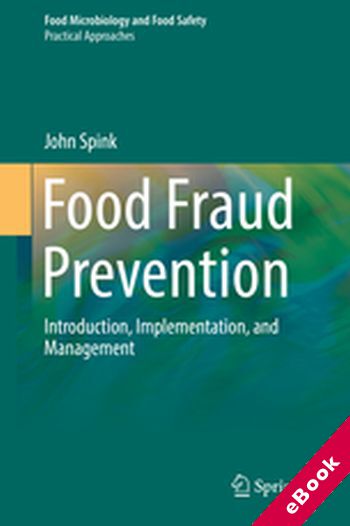
The device(s) you use to access the eBook content must be authorized with an Adobe ID before you download the product otherwise it will fail to register correctly.
For further information see https://www.wildy.com/ebook-formats
Once the order is confirmed an automated e-mail will be sent to you to allow you to download the eBook.
All eBooks are supplied firm sale and cannot be returned. If you believe there is a fault with your eBook then contact us on ebooks@wildy.com and we will help in resolving the issue. This does not affect your statutory rights.
This textbook provides a foundation for the theories and concepts to fully develop, implement, and manage a Food Fraud Prevention Strategy. The scope of focus includes all types of fraud (from adulterant-substances to stolen goods to counterfeits) and all types of products (from ingredients through to finished goods at retail). The root cause analysis is focused to combat the human adversary is based on Criminology Situational Crime Prevention theory. The overall prevention strategy expands fully through the system to the final resource-allocation decision-making based on the COSO principle of Enterprise Risk Management/ ERM.
The content includes a detailed review of the Food Fraud Definitions and Scope, Basic Prevention Concepts, a thorough presentation of the Food Fraud Prevention concepts and approach, the application of Business Decision Making and COSO based Enterprise Risk Management ERM, Criminology Foundational Concepts then an Application Review, Supply Chain Management Fundamentals and then Application, a review of The Role of the Public Private Partnership, Standards & Certifications with a focus on the Global Food Safety Initiative (GFSI), International Public and Private Response, Michael Porter theory based Marketing and Competitive Strategy, and finally a thorough review of Risk Analysis Basic Fundamentals and Implementation that includes full vulnerability assessment examples. The overall system is managed within the Food Fraud Prevention Cycle (FFPC) and starts with a pre-filter or Food Fraud Initial Screening (FFIS).